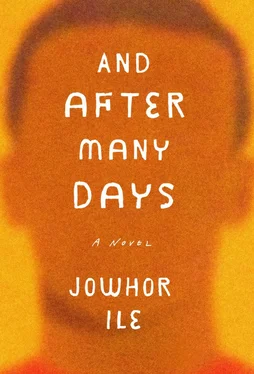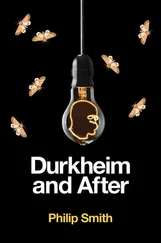“How do you get your drinks so cold with NEPA and their manic power cuts?” Mr. Ifenwa asked.
“We are supposed to get power every other day, but sometimes we don’t see any light for three days in a row. We have to run the generator to keep our food from going bad,” Ma said.
“It’s wonderful,” Mr. Ifenwa said, but it was unclear if he meant the cold beer or the constant power cuts.
“Ifenwa, so how are you getting on with your school?” Bendic asked. “Have any students enrolled yet?”
“Nearly fifteen,” he replied with a glow of pride.
“Really?” Ma said, her voice a little louder. “Where did you find them?”
“I recruit from everywhere,” Mr. Ifenwa said, scratching his head and then straightening up. “Some are my neighbors. You know those mechanics by the junction to my house? Two of them have joined.”
“You don’t say,” Bendic’s voice was barely louder than a mumble; his eyes traced the magazine left to right and back.
“Have you given it a name yet?” Ma asked. Mr. Ifenwa shook his head.
“Ifenwa School of Adult Education,” Bendic suggested without missing a beat.
“Spoken like a true bourgeois,” Mr. Ifenwa responded, about to smile. “Why must it have my name?” Then the almost-smile disappeared.
Bendic and Mr. Ifenwa were schoolmates and had become so deft at sparring in this way that you had to listen hard to catch that it was only amicable rivalry. Mr. Ifenwa wore egg-shaped lenses with thin silver frames that looked transparent. He used to live in America with his wife, Celia. They had returned to Nigeria one December for the holiday when Celia was killed in a car crash as they drove from their home village, Nnobi, to Port Harcourt. A broken-down trailer had been abandoned by a bend in the road without any warning signs to oncoming vehicles. She slipped away before they got to the hospital, and Mr. Ifenwa never returned to America. Although Ajie had never heard Mr. Ifenwa and his parents discuss his dead wife, and even before Ajie grew to know the story, it never left him — the death of his wife. It was an old musty smell of a cupboard seldom opened. His two sons still lived in America. One taught at a college in Boston, the other did something at a medical research center.
Now Bendic was saying something to Ma that Ajie hadn’t heard. Bibi skipped off from the dining area and hurried out of the parlor. She returned with Paul’s Walkman with the headset on, nodding a little as she listened, walking toward Paul’s outstretched hand. Paul took the tape out, turned it over, and put on the earphones. He listened for a few seconds to make sure it was the song he wanted before passing it to Gabby, watching his face for a reaction as he put it on and listened.
Ma took the remote control and flipped the channel, and there was Georgie Gold, a flamboyant local singer who wore her hair in a startling blonde, swinging her hips this way and that in her heavily sequined dress, belting out a tune Ma apparently didn’t care for. Ma seemed frustrated by the lack of choice on TV, but she may not have realized it, as Ajie watched her drop the remote control back on the arm of her chair in weary surrender. Ajie went to the dining area, where Gabby was telling Paul and Bibi a fantastical story about a village he once drove past. It was a land of only women. They never grew old.
“Oh, Benedict, you can do better than that.” Mr. Ifenwa’s voice came from across the room. Bendic responded: “We can get opinions by the dozen, but I want the facts. Give me something research based, then I will listen.”
Ajie knew they were having yet another argument. Sometimes Bendic called Mr. Ifenwa a “Communist,” and he called Bendic a “decadent bourgeois.” When Bendic said the military had brought Nigeria to its lowest point yet in history, Mr. Ifenwa would add that direct action was the only way out. In Mr. Ifenwa’s opinion, Nigeria was comatose, nailed shut in a coffin slowly moving toward a furnace.
After Celia died, Mr. Ifenwa spent the following years as a one-man campaigner for road safety: He wrote letters to the ministry of Works and Transport, he wrote articles that were published in the Tide newspaper and sometimes the national Punch . Many times he pinned placards on his body and stood before the Federal Secretariat. He had abandoned his job in the U.S., and even though his children pleaded with him many times to return, he didn’t. Two months earlier he had started a school for adult education. “The number of people I meet who have been to primary school but can’t read well is just alarming,” he had said.
“What about school fees?” Ma was asking now. “Are you charging yet?
“Not yet, my sister.”
“We can brainstorm, think up a suitable name. It’s really admirable, this idea. No joke, you must give me some advisory role in it,” Bendic said.
Mr. Ifenwa said, “There is no money to share here, Ben.”
“Me? Ifenwa.” Bendic was perched on the edge of his seat, pointing his fingers at his own chest. “Me, share money?” He shook his head and laughed like a bad man in a film. “I have suffered. Anyway, my dear friend,” he continued, “when you do decide on a name, avoid anything that has People, Masses, or Common Man .”
“It is cynicism that has kept the country in this state, Benedict.”
“I’m just saying, coming from you, it would be a bit of a cliché, don’t you think? It could only be worse if you gave it a Pentecostal Christian name, like, say…El-Shaddai Cradle of Learning,” and they burst into laughter.
“Or Divine Grace Group of Schools,” Ma added.
Mr. Ifenwa piped up. “I’m thinking of a name like No Condition Is Permanent. The ethos is clear enough. Anyone, regardless of current literacy level, can come and change for the better.”
“I know, I know,” Bendic said. “But that phrase is written on every bus or truck plying Aba Road.”
“And that’s exactly why it’s the right name: nonexclusive.”
“Hmm, I see your point,” Bendic mused. “It might work. In fact, I think it will work,” he said with certainty.
“Ol’ boy,” Mr. Ifenwa’s voice dipped from that cultured mix that had as much of Igbo in it as English, “so the name don win you over!” His English was of a kind that Ajie recognized only in people of his parents’ generation. They said perhaps instead of maybe. Peradventure was a word that occurred in regular conversations. Ajie was with Ma one day at Savannah Bank, and Ma told him to sit in the lobby while she went inside to speak to her banker. Ajie overheard a woman say, “Good a thing the government paid us when they did.” He turned his head to find the owner of the voice, and there she was, standing with three other women who might have been ex-colleagues. “If not that one has children who are able to augment one’s pension…” She let the words trail off like someone reluctant to show off her own good fortune. The four women kept vigilante eyes on what was going on at the front of the line. Pensioner types who probably ran into each other only monthly at the bank or whenever their payments came through. Although the woman Ajie heard speaking looked better dressed than the others, there was an austere neatness to her. Her skirt and blouse were made from reddish Ankara print; she wore Scholl slippers on her feet. Slung on her left shoulder was a puffy handbag from which the black head of a small umbrella stuck out. Her hair was evenly gray, freshly combed, tightly curled, and gleaming. When the fluorescent tube right above began to blink, for a moment her hair looked like a dark halo around her face. Ajie couldn’t make up his mind if she looked dignified, or poor, or both.
“So you are not charging any fees at your school?” Ma asked Mr. Ifenwa.
Читать дальше












